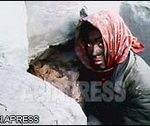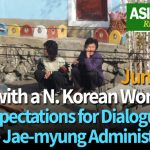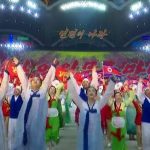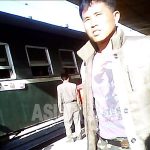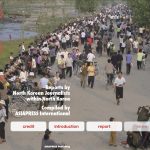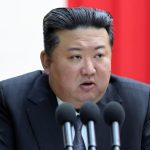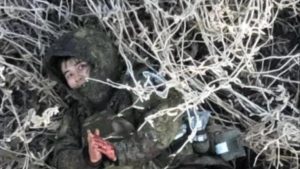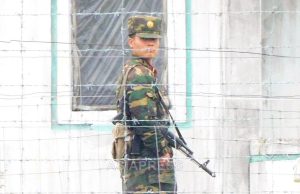
Information about troop deployments to Russia is gradually spreading within North Korea. However, there seems to be no information about Russia's 70,000 military casualties in the Ukraine invasion or about the duties of young North Korean soldiers being deployed. Perhaps because of this, the domestic atmosphere in North Korea welcomes deeper relations with Russia, with no negative reactions to the troop deployment emerging. Behind this lies not only information control but also severe economic hardship. In late October, three reporting partners living in northern North Korea described the current situation. (ISHIMARU Jiro / KANG Ji-won)
How is the Russian deployment viewed inside N.Korea? (1) Parents of soldiers gradually discovering deployments and information spreading: "They might get to eat plenty of cheese and milk," "No one thinks they're going to war"
◆ What's the domestic atmosphere regarding troop deployment to Russia?
On October 18, South Korea's National Intelligence Service announced information about troop deployment to Russia. Reporting Partner A, a Workers' Party member living in North Hamgyong Province, knew nothing about the deployment until ASIAPRESS reported it. After carefully gathering information from people around them, they described the domestic atmosphere regarding the rapidly deepening relationship with Russia:
"Regarding Russia, the atmosphere around me is that as allies, we should help each other in difficult times. Some people knew about the troop deployment. However, their understanding was just that 'our military is being sent to Russian conflict zones for guard and defense duties.'"
Reporting Partner B, living in Ryanggang Province, shares their view on the reason for deployment:
"When President Putin visited (in June this year), there was talk about providing many supplies as loans. Indeed, propane gas, sugar, flour, crude oil, and other items came in large quantities from Russia through Rajin. I think the government received a lot of help. However, in the past, when international aid came in, market prices never went down. Everything goes to the state, so ordinary people don't feel much benefit. Since we have friendly relations with Russia, we probably went to help Russia in their civil war (referring to the war with Ukraine).”
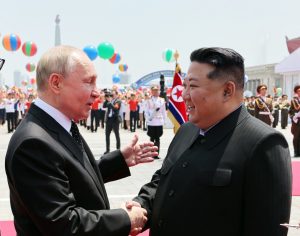
◆Receiving Oil, Food, and Equipment... "Benefits Don't Reach the Citizens"
In September 2023, Kim Jong-un visited Russia's Far East region, receiving warm hospitality during his 5-day stay, including meetings with President Putin. In September this year, President Putin made a state visit to North Korea, signing a 'Comprehensive Strategic Partnership Agreement.' Military mutual support was also specified in the agreement.
Among North Korean citizens, there's a feeling that relations with Russia are rapidly becoming closer, creating a welcoming atmosphere and expectations that this will help overcome economic hardships. Reporting Partner A investigated the connections with North Hamgyong Province and reported:
"It seems a lot of crude oil is being sent from Russia. The refining equipment at Rajin's 'Victory Chemical Factory' is old, and renovation with Russian equipment has begun, with plans to produce gasoline, heavy oil, diesel, and road-paving asphalt. However, Russian oil is monopolized by the state with none going to private operators, so market prices for gasoline and diesel haven't decreased at all.
State-owned enterprises are full of faulty equipment, but I heard that engines (motors) and heavy industry machinery from Russia are coming in quite steadily, creating an atmosphere of rapid renewal. However, raw materials for production still largely depend on Chinese products.
Many Russian goods are entering Rajin, but they don't reach individual merchants in the markets. This is because trade with Russia is conducted between states, not companies. There's much we don't know.
However, state enterprises have been distributing Russian wheat and flour as rations. For residents, flour was sold at 'grain sales stores' in August. Most food from Russia is prioritized for military units and barely circulates in general society, so market food prices haven't decreased."
※Grain sales stores are state-owned food monopoly shops. Since around January 2023, market sales of staple foods like white rice and corn were prohibited, and they could only be purchased at grain sales stores.
A reporting partner living in Musan said that the Musan mine, the largest iron mine in North Korea, will also be equipped with mechanical equipment from Russia.
"It has been decided to introduce mechanical equipment from Russia to modernize mining facilities, and people have come from the central authorities many times to investigate. It is said that it will be renewed in the first half of 2025.”
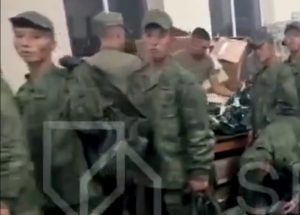
◆Selling Houses to Raise Bribe Money for Labor Deployment to Russia
Currently, urban residents' hardship isn't due to food shortages but rather the sharp decline in cash income. Personal business activities, transportation, and private employment have been strictly limited by the government since the 2020 pandemic.
While state enterprises uniformly raised monthly wages more than tenfold late last year, this only amounts to about 5,400-7,700 North Korean won, enough to buy just 5-7 kilograms of white rice. Among vulnerable groups like elderly households and single-parent families who have depleted their savings, some are dying from hunger and illness.
Amid citizen poverty, recruitment for Russian labor deployment is expanding. The South Korean government estimates that about 6,000 North Korean workers have been dispatched this year, with monthly earnings estimated at around US$800.
"Now it's difficult to earn even $1 a day. Chinese economic sanctions are strict, so we can't export seafood or minerals. People are even selling their homes and living with others to raise bribe money, trying to go to Russia as loggers or construction workers. Those with previous deployment experience or Russian language skills are being prioritized." (Reporting Partner A from North Hamgyong Province)
Reporting Partner C from Ryanggang Province similarly reported:
"If they could work in China or Russia, all Korean people would want to go. Even if the country takes a cut in between, it's much better than working here. Some people are mobilizing all their relatives to gather money for bribes to go. Since being selected requires a loyal evaluation, some people exemplarily attend work and clean (Kim Il-sung and Kim Jong-il's) statues and monuments."
◆Is Russian Deployment the Last Resort?
The South Korean government estimates Russia will pay the North Korean government US$2,000 per soldier per month for deployment. When informed of this, the reporting partners said:
"We have no information about whether soldiers can receive money, how much they might receive, or how much profit the country makes from sending soldiers. If soldiers could receive $2,000, I would go, too. Going abroad is the only way to make money now. Even if we're exploited or disrespected in Russia, we need to survive. Deployment seems like the country's last resort, too." (Reporting Partner A)
"If the US supports Ukraine, we should support our ally Russia - I think the government is trying to create that atmosphere. Besides joining hands with Russia, there might not be any other way (to run the country) well." (Reporting Partner C)
※ ASIAPRESS communicates with its reporting partners through Chinese cell phones smuggled into North Korea.
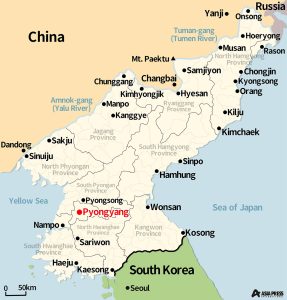
- <N.Korea Photo Report> The New Yalu River Bridge Today: Still Unopened After 10 Years Since Completion - Does it Reflect Cooling Relations with China? (7 Photos)
- How is the Russian deployment viewed inside N.Korea? (1) Parents of soldiers gradually discovering deployments and information spreading: "They might get to eat plenty of cheese and milk," "No one thinks they're going to war"
- [Photo Breaking News] Multiple Russian Vehicles at N.Korea-Russia Border, Including Unidentified Cargo (6 photos)
- <Inside N. Korea> 'Don't say anything about S. Korean propaganda leaflets and broadcasts,'… Orders to soldiers on the front line
- <Inside N.Korea> After COVID, Defectors Forcibly Repatriated from China Face 5-10 Years of Harsh Punishment; Families Also Exiled Under Guilt-by-Association
